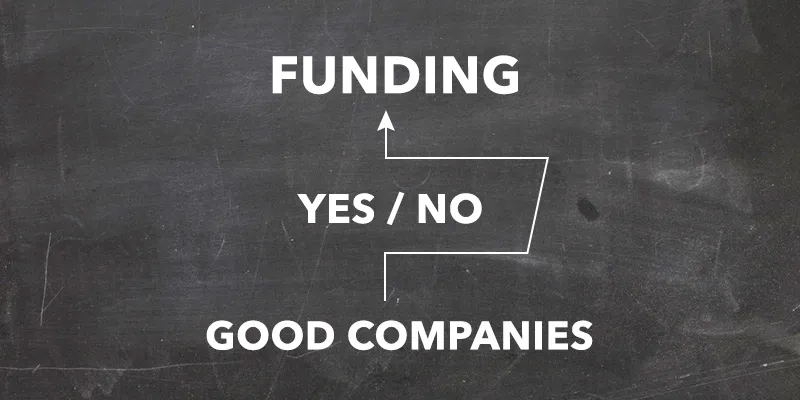Is there an actual slowdown in startup funding?

Speak to any investor or entrepreneur in India and chances are they will talk about an imminent slowdown in funding. But if all the news about fund raises by investors and the investments being made into Indian startups make you ask where the slowdown is, you are not alone.
Nexus Venture Partners is the latest risk capital firm to announce a fund close. The venture capital firm announced close of its Fund IV on Tuesday, with committed capital of over $450 million. Nexus now has over $1 billion under management. In a news report, Naren said existing Limited Partners invested in the new fund.
Nexus has been among the most prolific VC investors in the country and has a portfolio of over 60 companies across sectors like technology, consumer and business services. Nexus, founded by entrepreneurs Naren Gupta, Sandeep Singhal and Suvir Sujan in 2006, also follows an interesting model of investing in Indian and US startups, a model not followed by its peers in India like Kalaari Capital and Helion Venture Capital. The fund had made 29 investments between January and June in Indian and US startups.
The fund is an early investor in some of the top startups that have come up in the Indian ecosystem, including Snapdeal, ShopClues, Delhivery, Craftsvila, Eka Software and Druva. Nexus recently exited MapMyIndia, when it raised a strategic investment from Flipkart.
In a statement, Nexus said the fund remains focussed on seed and early-stage companies and “will invest in technology and data-led businesses that are disrupting consumer retail, financial services, healthcare, and education markets, and in enterprise technologies that are enhancing productivity and lowering time to market.”
The Nexus fund raise is just the latest by an India-focussed venture capital firm. SAIF Partners had raised $350 million in March and Accel Partners raised a $305-million, India-focussed fund the same month. In August, Lightspeed Venture Partners announced its first India–specific fund of $135 million, while in September Kalaari Capital announced a $290-million fund raise. That is not all—in 2014 Sequoia Capital, the largest VC in the country, had closed a $530-million fund for India that it topped up with $210 million this year. Even the private equity biggies have shored up capital: India Value Fund Advisors announced a fund worth $700 million in July, while Everstone Capital raised $730 million in September.
Are we overstating the slowdown, then? As is typical in such scenarios, the answer is both yes and no.
“The ‘funding slowdown talk’ is relative—the past couple of years have seen a very aggressive rate of investment which will be tempered,” says Sandeep, Co-founder and MD of Nexus Venture Partners.
Numbers back the unprecedented funding into Indian startups the past couple of years. About $8.7 billion has been pumped into Indian startups in 2015, according to YourStory Research data. In 2014, the total value of funding stood at over $5 billion. So a correction was overdue. Entrepreneurs who were on the funding trail in recent months agree with Sandeep’s view.
“Overall, financial markets tend to operate in extremes. The last 12-18 months saw much exuberance, and a correction was imminent,” says Abhiraj Singh Bhal, Co-founder of UrbanClap. The hyperlocal services marketplace raised $25 million in November, just months after raising $10 million. Abhiraj says the correction is not an India-only phenomenon. US-based payments ‘Unicorn’ Square saw its value being halved when it went public. Square’s last round of private funding had valued it at $6 billion, but the IPO in November saw its valuation reduce to $2.9 billion. Snapchat saw its valuation written down by 25 per cent by one of its investors.
Abhiraj says that in India, for category leaders in large, proven markets, raising the capital needed to build the business has not been tough, but also not easy either. “This is what happened for us, and is happening in other large categories like grocery or budget hotels. But it’s hard to raise capital if you are not No. 1 or 2 in your category,” he adds. Investors and advisers too say good Indian startups do not have to worry.
“The froth will get cleared. But that will not impact genuine capital interest for Indian startups. The fund raise by Nexus demonstrates genuine sustainable interest in the Indian startup ecosystem,” says Raja Lahiri, Partner at Grant Thornton India, a financial advisory services firm.
Nexus’ Sandeep says that the inefficiencies and gaps that Indian entrepreneurs can address do not go away. “We expect the entrepreneurial ecosystem to continue to grow, and strong entrepreneurs will continue to get funded. There will be a greater emphasis on sustainable business models and long-term profitability,” he says.
However, young startups should take note of this cautiousness among investors. A large number of startups that raised funding this year are early-stage ventures that raised pre-Series A or Series A rounds of capital. November saw 77 pre-Series A deals and 16 Series A deals, while the October numbers stood at 57 and 17 respectively. November saw the close of 106 deals, while October had 107.
“A number of companies that raised pre-Series A and Series A rounds will not get follow-on funding. That is how it always happens. But now overall number of startups that have raised early-stage funding has gone up,” says Grant Thornton’s Raja.
With most of the India-focussed funds flush with cash, Indian startups will definitely have access to capital. But who will get this capital is the question. As Abhiraj says:
“The short-term correction is actually good for the ecosystem. It removes the fly-by-night operators, so capital will be spent on the right things like building up the category, and not necessarily just fighting each other.”







